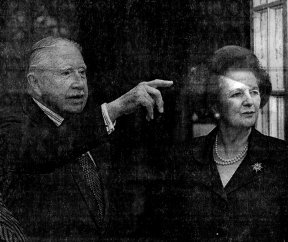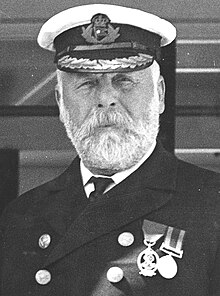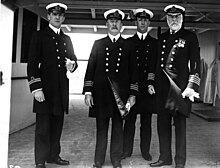On March 16, a man in Panama City, Florida, was sentenced to 14 years in prison for putting his 6-year-old daughter into an empty swimming pool in the back of his pick-up truck and driving down the highway. The pool was blown off the truck with the little girl in it and into the path of oncoming traffic. The girl, Catriona, survived the initial fall, but was killed when she was struck by a following car.
Jeffrey Sakemiller had four previous drunk driving convictions, his license had been suspended, and he was legally drunk at the time of the incident. His wife, the mother of Catriona, said “I hope he rots in jail”. Her comment made me wonder if he had kidnapped the girl. I know that what Jeffrey did was incredibly stupid and destructive, but if I were Catriona’s mother and Jeffrey’s wife, I wouldn’t say what she said out loud. I’d say something like, “This is the saddest day of my life.”
Fourteen years is a long time. If I had been the judge, I don’t think I would have given him 14 years. He didn’t murder the girl deliberately in a drunken rage. He was certainly criminally negligent, but our society usually makes a distinction between stupidity and evil. The judge was rightly appalled. But 14 years?
Stupidity is causing a death through bad judgment. Like Bush invading Iraq. Evil is when you knowingly do something that causes death. Like fudging the intelligence on Iraq.
Victor Robichaud of Paris, Ontario, did something fairly similar. He tried to pass a car illegally on a hill one night in 1997, and ran head-on into a car driven by Caius Jupan of Kitchener. Jupan was killed and Robichaud was charged with dangerous driving causing death. He received an 18-month sentence. This was considered pretty stiff, by Canadian standards. Both Robichaud and Sakemiller did something very stupid that resulted in the death of an innocent person. Neither of them intended to hurt anyone.
The difference is, Robichaud still has a chance to live a meaningful life.
The cigarette companies have also been accused of causing the deaths of innocent people. But the cigarette companies are not persons: they are corporations. In the U.S., several states have taken them to court. The tobacco companies negotiated a settlement. They paid a big fine. But who, really, is “they”? Management? Don’t make me laugh. Shareholders? Are you kidding? “They” turns out to be you and me! As a corporation, Phillip Morris and R. J. Reynolds and the gang can simply pass their fines on to us in the form of higher cigarette prices. Nobody goes to jail. Nobody even pays a penalty. Just us corporations here. Oooo. Owww. That hurts.
The difference between Jeffrey Sakemiller and the corporations that produce cigarettes (and the corporations who produce herbicides and genetically re-engineered food and bovine growth hormone…) is that the corporations, in many cases, deliberately produced harmful products for the purpose of material gain.
Jeffrey should have incorporated himself and hired a lawyer. He could have claimed he was a manager for a company that produced thrill-rides for little children. He could have claimed that his own research showed that the pool was safe on the back of the truck and anybody who thought otherwise was a liar. He could have complained bitterly that without tort reform, bold entrepreneurs like himself are discouraged from growing the economy.
He would still have been sued. He would still have lost. But then, at least, he would not have gone to jail. You can’t put a corporation in jail. Even if the plaintiff had won millions and millions, Jeffrey could have just closed up shop, walked away, and started a new business somewhere else.
The judge wanted to send a serious message to society. The message is, “don’t be so stupid”. Is that a helpful message? I have a hard time imagining that anyone dumb enough to put a child into a swimming pool in the back of a pick-up truck and then drive down the highway would be smart enough to read the newspaper and get that message.
In New York City, a dumb social services worker allowed a child to return home to her mother even though she had been charged with abuse and reckless endangerment several times. The child was killed. I don’t think the social services worker was even fired.
In the same city, four cops, looking for a man suspected of carrying a weapon, fired about 40 bullets into an innocent stranger. Republican Governor Giuliani defended their honor.
I think I would have given Jeffrey Sakemiller about two years, and I would have taken his license away for fifteen years, and instructed the local child welfare office to see that he is never permitted to look after young children again. I would also have given a good tongue-lashing to somebody: what was someone with four drunk driving convictions doing on the road at all? How could he even own a pickup? Who entrusted an incorrigible drunk driver with the care of a six-year-old girl?
Did the child’s mother, Rebecca, know he was driving around drunk with Catriona? Was she so angry because she wanted a break from the demands of an active child and and insisted that Sakemiller take her with to the store?
The news reports don’t say how old Jeffrey is. Let’s say he’s about 25. He’ll have to serve at least 85% of his sentence under U.S. judicial rules, so he’s going to be in jail until he is 36 or 37, at least. If he is a young man with any potential for any good at all, that will surely be driven out of him by then.
Obviously, he didn’t have a very good lawyer. If you were rich and did something really stupid that resulted in someone’s death– like Ted Kennedy, for example– you wouldn’t serve any time at all. O. J. Simpson. William Calley. Klaus Von Bulow. Oliver North. There are different laws for the rich. The first law is that all of that constitutional business about equality before the law is pure hogwash.
* * *
A New Jersey State Police officer who pulled over a 52-year-old black woman who was driving a Porsche, and spat at her and assaulted her, didn’t get punished at all, though the state government had to pay her $225,000. If you’re a taxpayer in New Jersey, you might want to ask why the government is paying out $225,000 if the police, as they claim, didn’t do anything wrong.
All the NRA members and Baptists and Republicans will accuse me of being soft on crime. I’ll be turfed at the next election. I’d say, “Fine. I’ll go live in France.”




